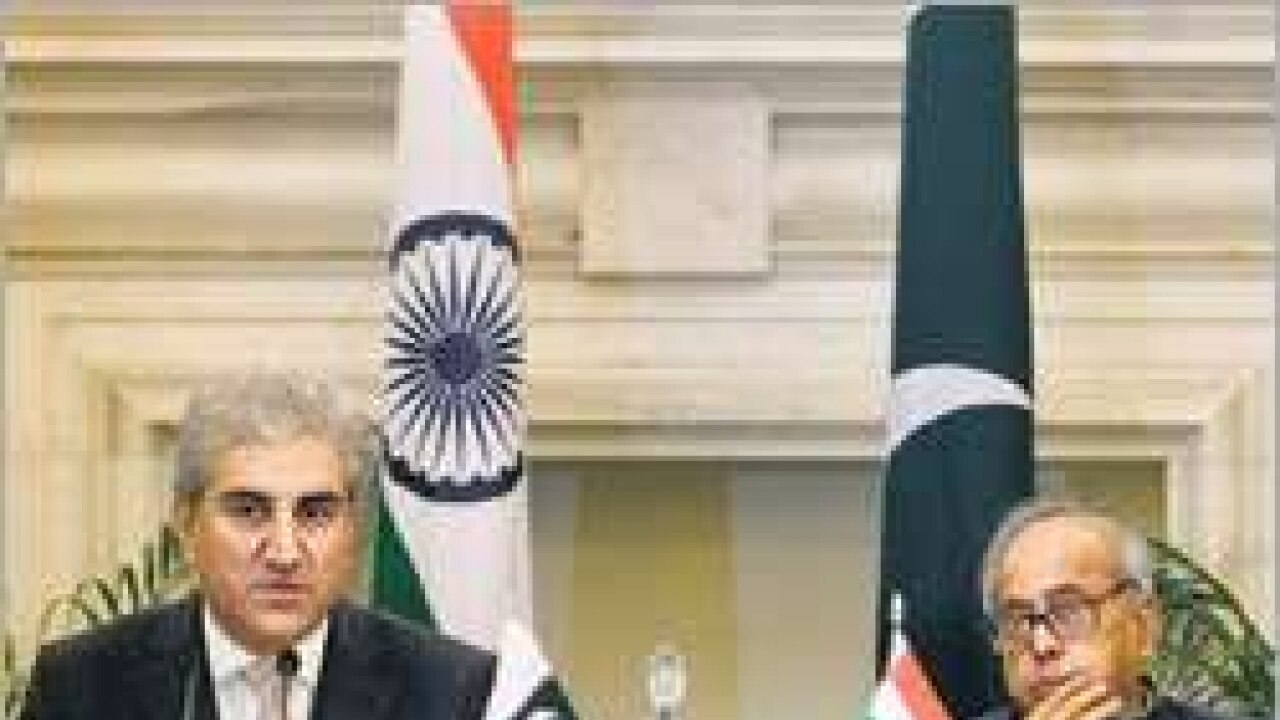A month has elapsed since the Mumbai massacre but no coherent external strategy to deal with the Pakistani challenge has yet emerged. A totally defensive strategy to deal with terror is unworkable.
We cannot seal ourselves hermetically, converting ourselves into an impenetrable fortress. Citing the absence of any terrorist attack on US territory since September 11, 2001 is erring in analysis. US has a robust defensive strategy and a brawny offensive strategy against terrorism.
It is not the Department of Homeland Security or the Patriotic Act which alone have protected it from any terrorist attack. Libyan President Gadaffi’s palace was bombed some years ago when two US servicemen were killed in Berlin by suspected Libyan intelligence operatives.
When Bush senior was allegedly the target of an Iraqi conspiracy to kill him during a visit to Kuwait, Bush junior attacked Baghdad with cruise missiles. The Taliban were ousted from Afghanistan militarily and Saddam Hussain’s Iraq was invaded by US to avenge the 2001 attacks.
Geography assists America. It is separated from the epicentre of terrorism by an ocean. In its combat against drugs, the US believes in eradicating the threat at its source. The frontline for countering terror for America is Afghanistan, at the opposite end of the globe. Its strategy is to have as large a buffer as possible between it and the hotbeds of terror. It has only two neighbours, both friendly.
Neither Canada nor Mexico uses terrorism as an instrument of state policy towards US. The country has no local insurgency to combat, much less one inspired, aided and abetted from outside.
US policy is global in its scope, for which it actively mobilises the support of other countries; it is the prime mover in the UN of resolutions obliging the international community to cooperate in combating terror based on its prescriptions. It effectively imposes its domestic law on others by compelling others to bend to its requirements as in the case of the Container Security Initiative.
We are far more vulnerable to terrorism, with incomparably less resources and international support at our command. We have no buffer between us and the epicentre of terrorism. We are confronted with implacable hostility from a large Islamic country, powerfully equipped militarily and now nuclear capable, that has used terror against us for well over two decades with the agenda of not only wresting Kashmir but destabilising India by constant pressure on the communal fault line in our country.
Pakistan has openly played the religious card against us bilaterally and internationally, actively mobilising the Islamic countries against us, constantly clubbing Kashmir and Palestine in Islamic forums and the UN in order to distort perceptions about how India treats its Muslims and prevent strengthening of bonds between us and the Islamic world, which would be natural given the size of India’s own Muslim population.
Pakistan’s hostility towards us is pathological in nature. It has a single agenda policy — of check-mating India. Because of the Kashmir issue, which it refuses obstinately to resolve on any realistic basis, it will not normalise relations with us.
It claims it feels threatened by hostile India yet thrives on creating conditions of conflict with us. While projecting itself as the smaller and weaker country, its conduct in always seeking parity with India, reflects a contrary mindset. Pakistan lays claims to our territory, pursuing policies of aggression and subversion and using terror as an instrument of state policy for which it nourishes jihadi groups.
Its standard defence for its policies, including nuclear, is to blame India and then present proposals that it knows India will reject as we do not have a single agenda foreign policy, fixated on Pakistan.
Pakistan has successfully pursued its disruptive policies because of its readiness to serve the interests of others, of US and China in particular. This has brought it enormous financial and military assistance over the years, which has, in turn, enabled it to pursue its inimical policies towards us.
Pakistan has learnt the art of leveraging its usefulness and extracting the maximum for its services, with the accompanying language of cooperation, defiance, compliance, denial, joint effort and rejection of action. This unhealthy nexus continues and Pakistan’s misdemeanours are tolerated.
That is why Mumbai happened and why America is considering a $15 billion package for Pakistan, with a military component. No wonder Pakistan will feel rewarded, not punished.
China and others will ignore Pakistan’s criminal conduct and advise us to pursue our dialogue with it to combat terror, as if Mumbai and post-Mumbai is a responsibility we share with Pakistan. When a country is reluctant to take the bull by its horns, others will not step in and risk injury.
The writer is a former foreign secretary
